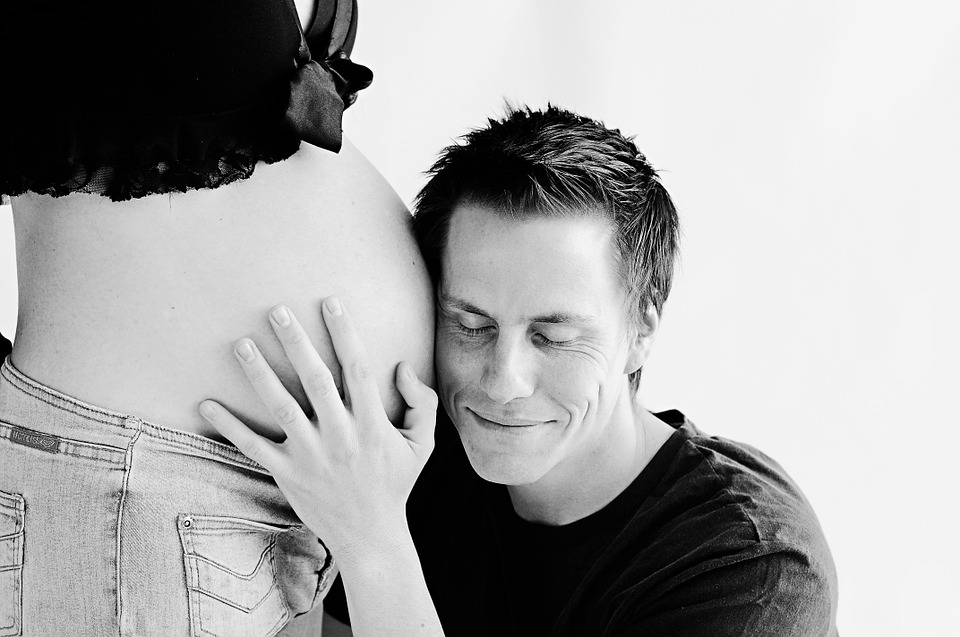Are you pregnant but are not sure who the father of the baby is?
You are probably looking into getting DNA test while pregnant. While you could always wait until the baby is born, more and more women are opting to get the test done sooner. The accuracy of the prenatal paternity test is no different to one done after birth and it ultimately involves the comparison of the baby’s DNA to that of the probable father just like a normal paternity test. Another reason for getting a DNA test during pregnancy is to determine whether the baby is at risk of having chromosomal abnormalities. Below are some of the frequently asked questions regarding getting a DNA test during pregnancy.
1. When Is the Best Time to Get a DNA Test During Pregnancy?

The DNA test can be done as soon as eight weeks into the pregnancy without posing any risk to the baby. The time you have to wait largely depends on the type of testing you opt for. If you want the test done earlier in the pregnancy, then non-invasive methods are best used to reduce the risk of miscarriage. More invasive methods require the baby to be more developed.
2. What Types of DNA Tests are Recommended During Pregnancy?

You have 3 options open to you if you want to do a DNA test during pregnancy – Chorionic Villus Sampling (CVS), Amniocentesis, and Non-Invasive Prenatal Paternity (NIPP).
- Chorionic Villus Sampling (CVS) – This test is performed between week 10 and 13. The doctor will insert a needle or tube into your vagina and use an ultrasound to guide it to the cervix. The doctor then collects a sample of chorionic villi. These are tissues attached to the wall of the cervix. Only a doctor can perform the CVS test.
- Amniocentesis – This is an invasive DNA test that is done between week 14 and 20. The doctor will insert a needle into your cervix through your abdomen. They then collect s sample of the amniotic fluid for analysis. There is a risk of miscarriage and side effects such as cramping, vaginal bleeding, and amniotic fluid leaks. This procedure is best performed by a doctor.
- Non-Invasive Prenatal Paternity (NIPP) – In this test, the DNA of the mother and potential father is collected and compared to the DNA of the baby found in the mother’s blood.
3. Is it Safe to Do DNA Tests When Pregnant?

Using a non-invasive DNA test while pregnant is perfectly safe as it poses no threat to the baby or the mom. Invasive tests come with some risk. The amniocentesis test comes with a risk of a miscarriage of between 0.1 to 0.3 percent. Chorionic villus test comes with a miscarriage risk of between 0.5 to 1 percent.
4. Where Can You Get a DNA Test Done During Pregnancy?

Where you get the test done largely depends on the type of test you wish to receive. Chorionic Villus Sampling and Amniocentesis require a doctor to administer since they are invasive procedures. You should have them done at a medical facility. The NIPP testing can be safely done anywhere as long as blood can be drawn from the mother. If you choose to use an at-home DNA testing service, you will need to send the collected blood sample along with a cheek swab of both the mother and the father to a laboratory for testing.
5. Are Prenatal DNA Tests Accurate?

The accuracy of prenatal DNA testing will largely depend on the laboratory where the samples are tested. This is why you need to pick a fully accredited lab. Don’t bargain hunt when shopping for a DNA testing service provider. If the price is too good to be true, then it probably is. Most results from NIPP are 99.9% accurate. The accuracy of an amniocentesis DNA test is around 99% for testing for trisomy 18 and Down Syndrome. The Chorionic villus sampling test has a 98% to 99% accuracy when used to detect genetic abnormalities and disorders.
6. How Much Does a Prenatal DNA Test Cost?

The cost of the test varies depending on the type of test. An ancestry DNA test during pregnancy will cost you about $100. Make sure to do your research to determine exactly how much it will cost you to do a test as it varies greatly from one provider to the other. An amniocentesis test can cost anywhere from $1000 to $7200 if you do not have an insurance cover. The Chorionic villus sampling test can cost anywhere from $1,300 to $4,800.
7. Is Prenatal DNA Testing Covered by Insurance?

Your health insurer is unlikely to cover a Non-Invasive DNA Paternity Test (NIPP) since it is not exactly a medical necessity. However, most insurers cover amniocentesis and chorionic villus sampling (CVS). For the amniocentesis test, you will need a referral from your doctor. For CVS, you have to have certain risk factors such as being aged over 35 or have a medical history of some genetic diseases.
Your insurer might ask for proof from your doctor that these tests are required before they provide coverage. Your doctor is unlikely to recommend an invasive prenatal DNA test unless there is a medical necessity so it shouldn’t be a problem getting your doctor’s recommendation.
8. How Long Will You Have to Wait for Results After DNA Test While Pregnant?

The test should take anywhere between 3 to 12 weeks. This will largely depend on the lab you’ll be using. Talk to a DNA specialist at CRI Genetics to find out more about getting a DNA test while pregnant.











